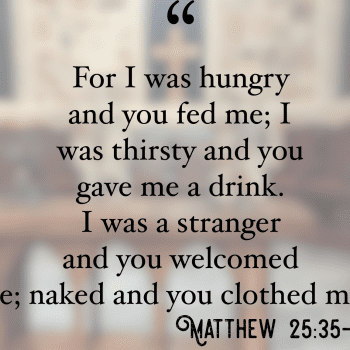What is the balance between selfless love and the responsibility for self-preservation? Regarding the immigration dilemma, is maintaining law and order pivotal to America’s ability to welcome foreigners from all over our diverse world? It seems that in today’s political climate, people are mistaking mass illegal immigration on America’s southern border as the presence of refugees who are seeking asylum (from political or religious persecution, war violence, communism, and starvation in their own countries). Some foreigners do qualify to be granted asylum under America’s immigration laws and those folks are being granted asylum on a case by case basis as we speak.
Applicants whose paperwork have been processed by the U.S. Customs and Immigration Services prior to immigrating have been issued green cards which authorize legal residence. What is not widely publicized in the U.S. media is that our federal government in the last ten years continues to approve lawful residence for an average of one million-plus foreign applicants each year under various criteria. In addition, an average of 50,000 refugees each year are granted asylum status and admitted. Millions more who have applied to immigrate are on the waiting list and still living in their native countries (most likely from all five continents).
Lawful immigrants with green cards are eligible to apply for citizenship after at least five years of residence and no criminal activity on their records. Most, like my parents, jump at this opportunity and anxiously study for their citizenship test so that they can become eligible to vote. The minor children of naturalized parents automatically become naturalized citizens themselves, which was how I became a proud citizen during my 8th-grade year. Americans like me are the folks who are expressing concerns with illegal immigration.
American Citizenship Privilege
As former boat people from South Vietnam, my family and I lingered for eleven months homeless and stateless in a disease infested UNHRC refugee camp in Malaysia. Finally, a developed nation was willing to take in a father with five young kids (Mom and baby sister later made it to a different refugee camp in Thailand). It was a Lutheran Church partnering up with state and federal authorities in the United States in 1979 that stepped up to show compassion for our dire situation. The White man’s Christian faith through love and compassion from a small Texas town was what planted the seed for me to accept Christ later in my life. And these Christians are still living out the Gospel today, through volunteering, donating their hard-earned money and resources, adopting, and sponsoring people from all over the world.
Today, as an immigrant turned American citizen, I will be the first to acknowledge the privilege of U.S. citizenship. This privilege is made possible by law-abiding taxpayers and protected by men and women who died serving our country in numerous international conflicts throughout our history. Immigrating to America is not a right or entitlement for anyone. I am grateful to have been among the foreigners who were granted green cards. But I know plenty of Southeast Asian refugees who were sponsored by and assimilated to other stable countries as well, namely Canada, Australia, UK, France, and Sweden.
I don’t want to see America, my new homeland, lose our greatness through false and corrupt ideology that have toppled other governments in this small world. The sweet rhetoric of revolutionary zealots in America raises all my red flags as it suggests a lack of understanding of human nature as shown in our tumultuous world history. The warning that “the road to tyranny is usually paved with good intentions” rings true for me and millions of immigrant Americans in a personal way. The US is a sovereign nation that should be able to defend her borders, make laws that protect and benefit the welfare of her citizens. I am concerned that the very foundations this great country was built upon, our Constitution and Judeo-Christian values, are being chipped away one idea at a time.
The fact is that differences exist not just between nations and governments, but also within any given culture. Civil war is part of our world’s history wherever humans dwell. Peacetime, democratically elected leaders, and wise governing have raised the economic prosperity of nations, such as the case of South Korea since the late ’80s. Meanwhile, warring factions, power-hungry authoritarians, lawlessness, or foolish governing contribute to their demise, such as in the recent case of Venezuela. It is no surprise that even today, humans all over the world continue to flee from unstable, impoverished countries for better living elsewhere. Yet, the international situation at America’s southern border may not be so much about fleeing persecution or war violence but moving from Second and Third-World living conditions. See the list of regions that are currently experiencing emergencies that qualify for UN-designated refugee status.
Immigration: Supply and Demand
If poverty and instability in Mexico and Central America, as well as some other parts of the world, supply immigrant hopefuls, then the eagerness of American businesses to hire cheap under-the-counter laborers demand undocumented workers. Indeed, despite having clear sovereign boundaries and national immigration laws on paper, a lack of law enforcement by federal, state, and local authorities in America has also promoted mass illegal crossing. There are sanctuary cities along the border states, such as in Houston where I attend church, where for decades, undocumented immigrants stand in plain view waiting to be picked up for a day’s hard work to be paid in cash.
I have no qualms against my brown brothers and sisters. People of all colors and immigration status interact quite peacefully and freely on a daily basis in Houston. Some of my Medicaid clients that I see for psychotherapy were born in America but are raised by parents and other relatives who immigrated unlawfully. While there are dangerous criminals among the undocumented, the vast majority are great, lovable, relatable people just like you and me.

Yet, many of my most like-minded friends who vehemently oppose the idea of open borders are Hispanic Americans (immigrant and second-generation onward), as well as lawful immigrants from various unstable, corrupt countries around the world. Perspectives on immigration reform and policies are not strictly race-based, despite certain politicians’ and journalists’ inane ability to articulate this. The fact remains that America has been and continues to graciously welcome immigrants from all over the world, not just from Europe. Our diversity is what makes us great. Our law and order framework is what allows for this diversity and stability to continue.
Nuanced concerns of immigrant Americans, conservative Hispanic Americans, and other Americans of Color are mostly ignored by American media as if we don’t exist. Instead, the evening “news” prefer to paint people with broad strokes into black versus white, good vs evil, loving vs hateful camps. How unhelpful and untrue! There seems to be no public forum for thoughtful discussion on this complicated international situation at our national southern border. Instead of engaging in namecalling or virtue signaling, Senator Tom Cotton discusses thoroughly the history of American immigration laws and how these impact American national security and economic prosperity.
Good Reasons for Migrating
Many immigrant hopefuls no doubt want to come to America for good reasons. Who does not want to live in a fairly stable nation with law and order? Not only that, but we are the world-renowned land of opportunity that guarantees the freedom of religion, the rights to assemble, have free speech, and to bear arms against criminals or a corrupt militia. Yet, unless these folks face an imminent threat to their lives or forced homelessness due to war, the majority of these migrants probably do not qualify for political asylum. It’s just easier for them to make it to America’s southern border than for the poor folks in Bangladesh and Uganda who are also yearning for a better, more prosperous life. Note, a minority of these asylum applicants at our porous border are actually from Middle Eastern and Asian countries hoping to take advantage of our political quagmire and loopholes within law enforcement.
As America is the most humane, prosperous, and free country for the immigrating, it is no wonder that there is a long waiting list to be issued green cards. Knowing this, many Latinx folks don’t even bother to apply “through the proper channels” because these folks can enter more quickly by crossing illegally even if that means living as “undocumented immigrants” and then waiting for the “defensive asylum process“ to take its course. And, according to an immigration worker I know, they’ve been coached by political activists in this country to say certain keywords in their application in order to receive asylum status. Furthermore, some American business owners are perpetuating the steady flow of illegal crossing (by land and by plane) by hiring undocumented workers for cheap labor in the black market. In fact, if we are honest, a number of American citizens of all racial/ethnic backgrounds also participate in the tax evasion in various ways.
Amnesty or Law and Order?
When President Ronald Reagan signed the Immigration Reform and Control Act of 1986 allowing for a one-time massive amnesty for unlawful residents already living in the United States, it was with the intention of strengthening border security while humanely dealing with undocumented immigrants. However, the act did not abate the flow of illegal crossing. Congress had not acted to strengthen and reinforce national borders, and Latinx folks were encouraged to believe another similar amnesty may happen again in the future. With so many undocumented immigrants having successfully crossed the American/Mexican border with no legal authorization and attaining livable conditions, gainful under-the-counter employment, free education, and welfare benefits of various kinds, this incentivizes more folks back home who yearn for a better living to do the same. It seems that living as undocumented and poor immigrants in a developed nation is more desirable or profitable than living in a “developing” country.

What are American legal residents and citizens to do? We have a stake in this controversy since the immigration policies affect our culture (already a large salad bowl rather than melting pot), our taxes, and our sense of national stability, community security, and individual prosperity.
Are we to choose between thinking with our heads and feeling with our hearts? If it is a clear matter of the heart, then are we doing our part to take care of the widow, the orphans (children in foster care), the poor, disabled, and the veterans already living among us? Just within 15 miles from my home exists a few parts of town that resemble third-world living conditions. As a social worker, I often hear Black social workers talk about the inequity in the US–how Black America is beautiful and full of potential, but a disproportionate number are disadvantaged by our laws favoring the wealthy and well-networked. How is America helping the poor citizens already among us? What about Americans of all skin color who can barely afford health insurance? What about the veterans or children in foster care who are separated from their parents for the parents’ poor choices? The need is great but the workers are few.
Regarding the migrant presence at our southern border, should the United Nations play any role in resolving this international humanitarian issue? Can other stable, developed countries besides the US step up to welcome more asylum seekers like they did with Southeast Asian refugees in the late 1970s?
While you come up with your thoughtful ideas, I will work on mine.












